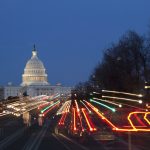By Mark Schultz
Today, CPIP is proud to release a paper authored by the nation’s preeminent expert on trade secret law, James Pooley. Mr. Pooley’s paper explains the arguments in favor of the Defend Trade Secrets Act of 2015 (“DTSA”), which is currently being considered by Congress. Read more


 We’ve released a new policy brief,
We’ve released a new policy brief,  In late July, the USPTO issued its July 2015 Update to the 2014 Interim Section 101 Patent Eligibility Guidance (IEG).
In late July, the USPTO issued its July 2015 Update to the 2014 Interim Section 101 Patent Eligibility Guidance (IEG).  CPIP has released a new policy brief,
CPIP has released a new policy brief,